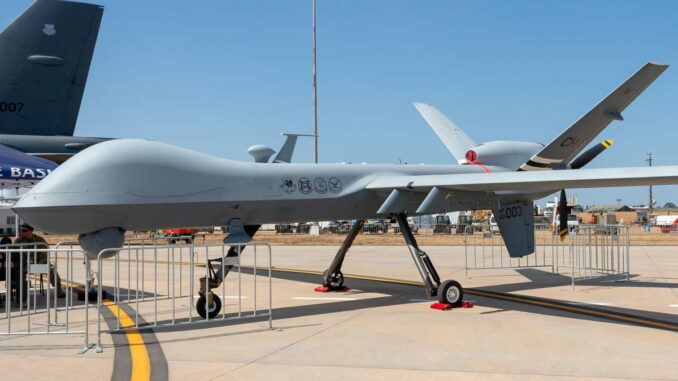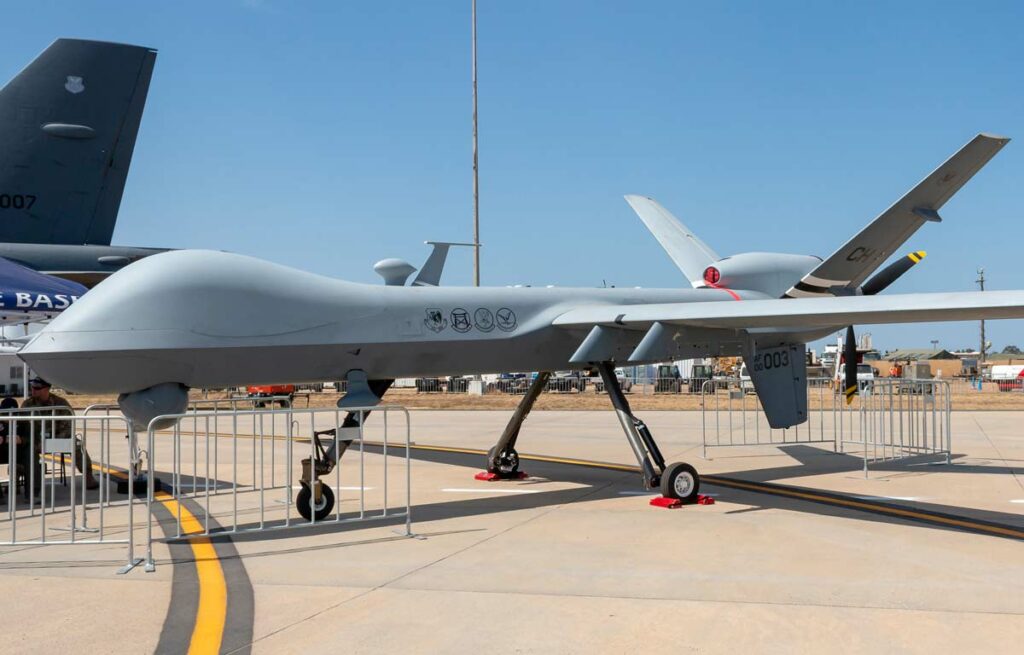
Canada is pushing the technological envelope by adapting its Reaper UAVs for Arctic operations. An innovative and strategic defense project.
Canada is delaying the acquisition of medium-altitude armed UAVs to adapt them to Arctic conditions. This project, essential for national defense, raises unique and strategic technological challenges, including the integration of new systems on the MQ-9B Reaper.
The Canadian government recently decided to postpone its US$3.6 billion MQ-9B Reaper UAV project, originally scheduled for 2025. The main reason for this postponement is the adaptation of these aircraft to the extreme conditions of the Arctic. This strategic choice highlights the technological, geopolitical and environmental challenges facing Canada.
Project background
- Acquisition and delay :
The original plan was to deliver UAVs to the Royal Canadian Air Force by 2025. This deadline has been pushed back to 2028 to allow for the development of technologies adapted to Arctic conditions. - Canadian specifics:
According to Andrée-Anne Poulin, spokesperson for the Department of National Defense, Canada requires specific functionalities for its UAVs, different from those of its allies.
Technological challenges
- Adapting to the Arctic climate:
The use of MQ-9Bs in the Arctic requires the integration of satellite communication systems, antenna components and sensors adapted to high latitudes. - Canadian sensor integration:
The project includes the integration of the Canadian-designed WESCAM MX-20 EO/IR sensor on MQ-9B UAVs. - Certification and training:
Airworthiness certification and the development of training solutions specific to the Royal Canadian Air Force are also key aspects.

Geopolitical implications
- Arctic sovereignty:
Strengthening surveillance capabilities in the Arctic is crucial for Canada in the face of sovereignty issues and growing geopolitical tensions in the region. - Foreign military sales:
The U.S. State Department’s approval of a $313 million sale of Hellfire missiles and other equipment underscores the importance of international collaboration in this project.
Consequences and prospects
- Technological innovation:
The development of technologies adapted to the Arctic could pave the way for new applications in other fields, such as environmental research or maritime surveillance. - Impact on Canadian defense:
These improved UAVs will strengthen Canada’s surveillance and defense capabilities, particularly in its strategic northern region.
The delay in Canada’s acquisition of Reaper UAVs is not simply a setback; it represents a deliberate move towards a technology that is more adapted and effective in the Arctic environment. This project underscores the importance of technological innovation in defense, and highlights Canada’s crucial role in Arctic surveillance and security. The successful implementation of this project could not only strengthen Canada’s national defense, but also position the country as a leader in drone technology adapted to extreme conditions.
War Wings Daily is an independant magazine.